1. Fish Intestine Curry, Thailand
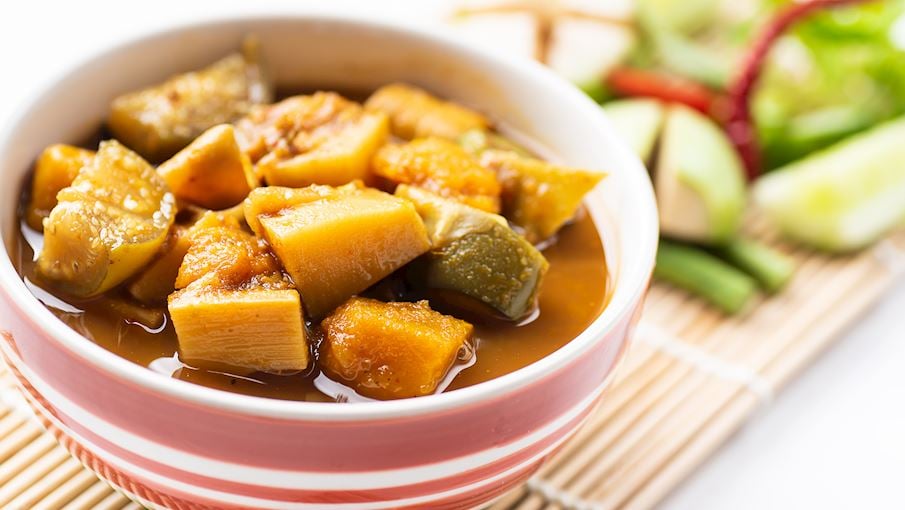
Fish curry originated in southern Thailand. The base of the dish is made with tai pla – fermented fish intestines – and a spicy curry sauce made with chilies, galangal, shrimp paste, turmeric, shallots and lemongrass.
Other common additions include dried fish, shredded eggplant, bamboo shoots, green beans, or vegetables. Because of its strong flavor and pungent aroma, kaeng tai pla (fish intestine curry) is often served with white rice. Traditionally, it is made with only fish, and most curries do not use coconut milk.
2.Hákarl, Iceland
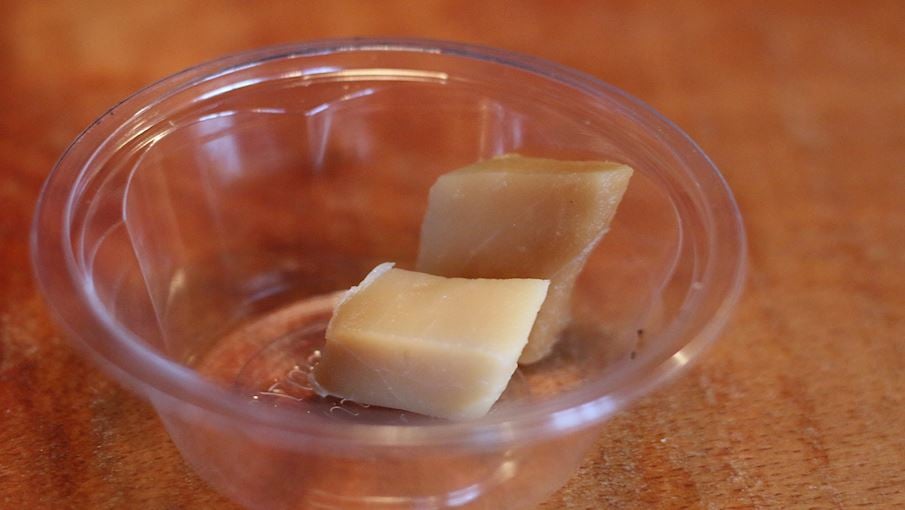
Iceland’s national dish is made from cured shark meat, particularly Greenland shark and other shark species. The meat is first fermented for up to three months, then hung and dried for another four to five months. There are two varieties: the chewy, red glerhákarl and the soft, white skyrhákarl. It is often considered a food for the brave, as its high ammonia content causes people to gag.
The cured shark meat is usually cut into cubes and enjoyed with a glass of local spirit called brennivin.
3.Fesikh, Egypt
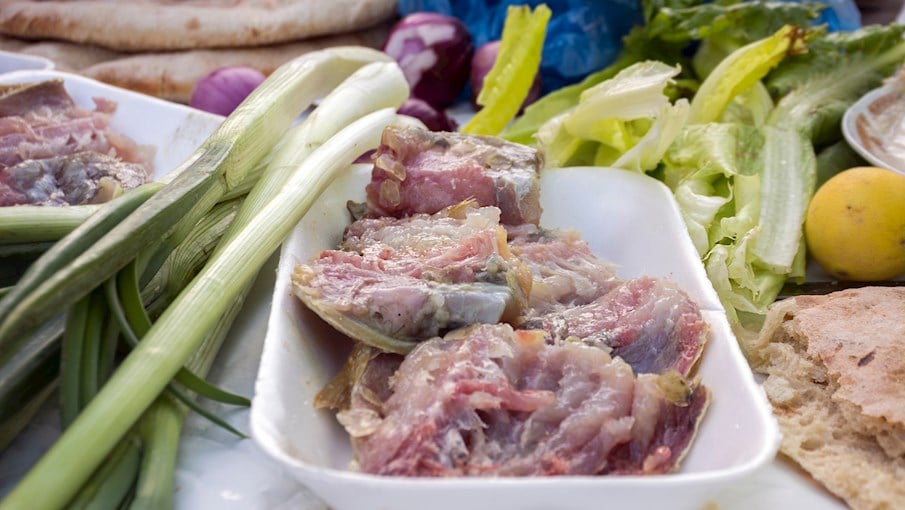
A popular Egyptian dish is dried, fermented, and salted grey mullet. The fish is dried in the sun. If not prepared properly, the dish can be poisonous, so it is traditionally stored in sealed glass jars.
Fesikh is served during the Sham-El-Nessim festival, accompanied by chopped onions, lemon and Egyptian bread.
4.Yerushalmi kugel
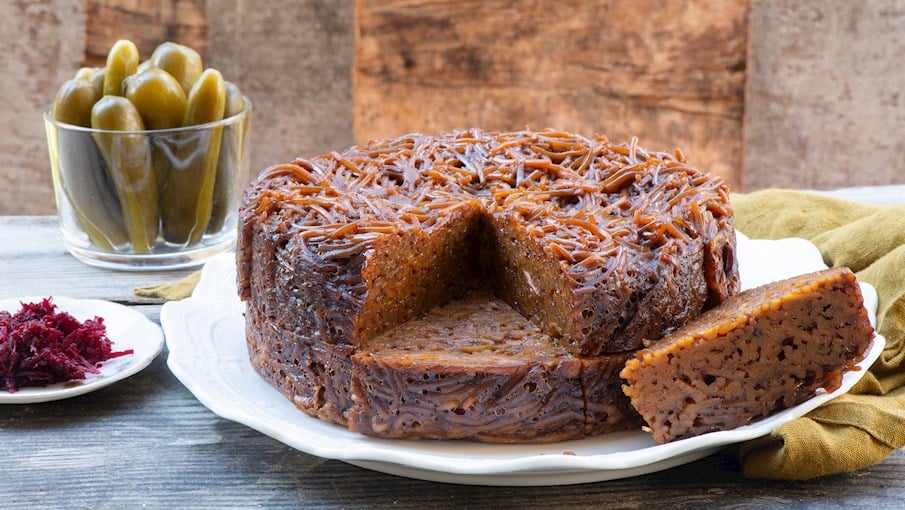
A casserole dish made with cooked pasta coated in caramelized sugar. Mixed with eggs, olive oil, pepper, and salt, the mixture is placed in a pan and baked until dry. It was first introduced to Europe in the 18th century by Jews.
5. Luther Burger, USA
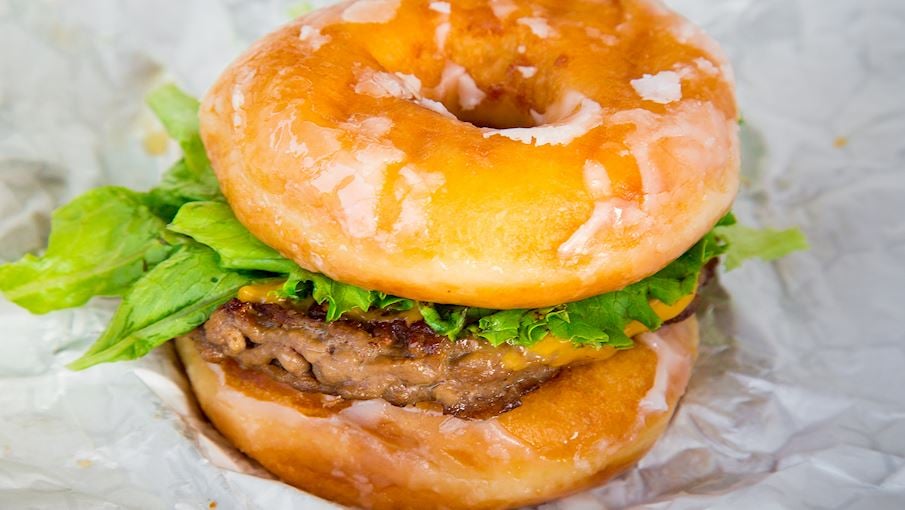
At over 1,000 calories and often over 45 grams of fat per serving, the Luther Burger is one of the unhealthiest burgers in the world . The standard burger bun is replaced with a sliced, sugar-coated doughnut (usually a Krispy Kreme).
Additionally, the Luther is essentially a bacon-topped cheeseburger, often served without vegetables or condiments. Many believe it was invented at Mulligan's Bar in Georgia, when the chef ran out of standard hamburger buns and used donuts instead.
6.Pani ca meusa, Italy
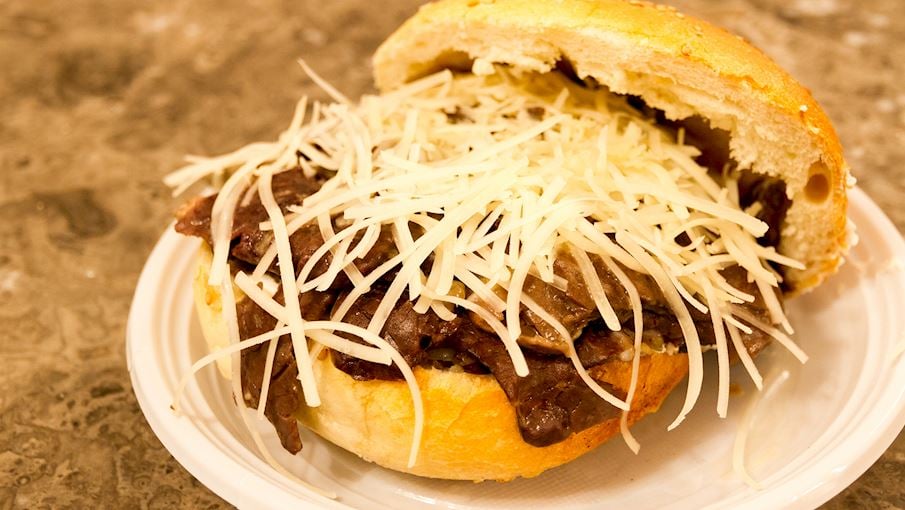
A Palermo street food staple dating back to the 15th century, this simple sandwich consists of a soft bread filled with fried beef spleen and (sometimes) lungs. The meat is the main ingredient, and the basic version, called a schettu, is simply topped with a dash of lemon juice, while the only other option is a maritatu, which includes shredded caciocavallo cheese.
7.Eel jelly, England
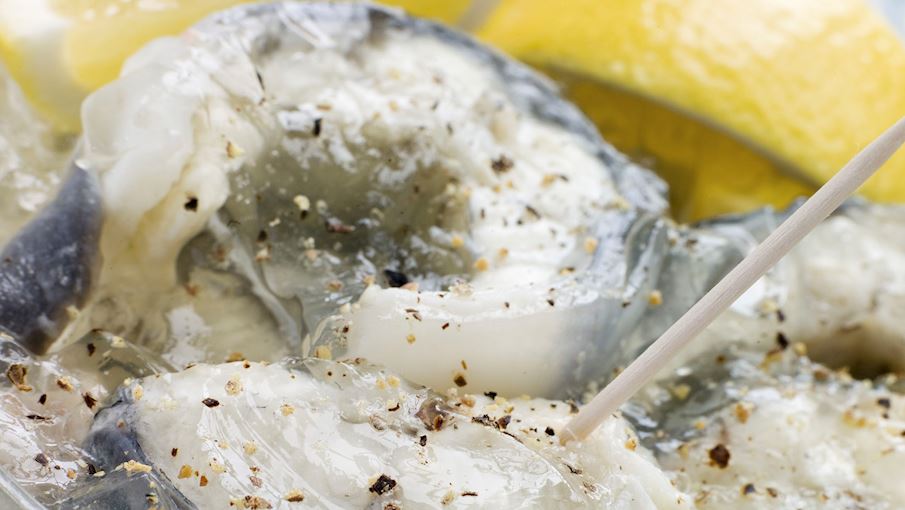
Jell-O-Tee is a traditional Cockney street food that dates back to the 18th century. Originally, it was a cheap and easy way to make a tasty dish, with plenty of native eels available in the River Thames. The eel would be cut up, boiled for about half an hour in herbs, then left to cool – this is when the fish produces its own gelatin and a soft, clear jelly would form on the cut pieces.
8.Calskrove, Sweden
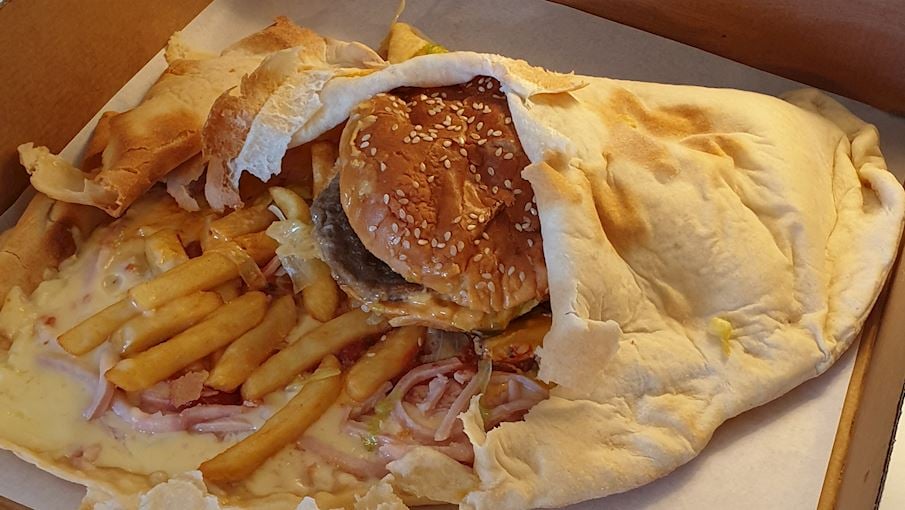
This giant meal is the creation of the Tre Kronor restaurant in Skellefteå, Sweden. It consists of a pizza calzone stuffed with a burger (along with bread, toppings and sauce) and French fries.
The calorie-laden dish was originally created for people who couldn't decide whether to have pizza or a hamburger after a night of drinking.
9.Peladillas, Spain
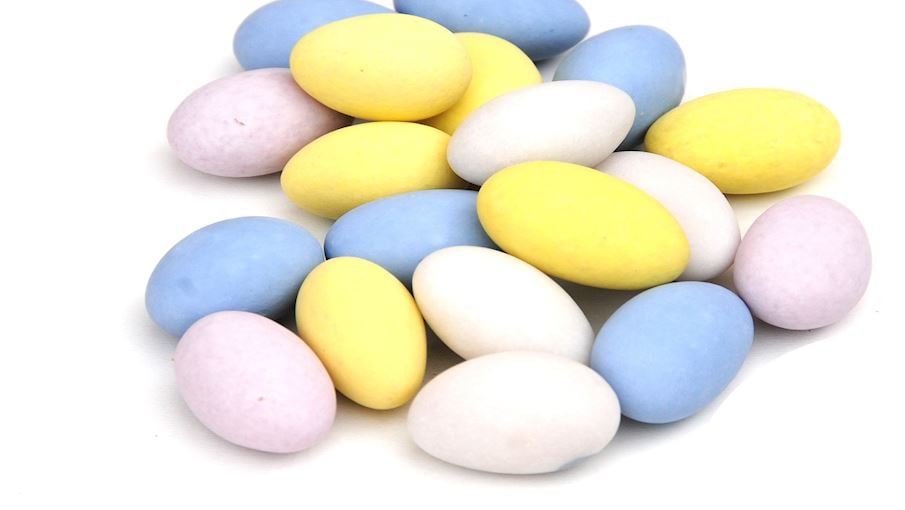
A Spanish treat consisting of toasted almonds coated in a hard sugar coating. There is also a variety made from pine nuts, which are then called pinones. Peladillas are characterized by their crunchy texture and full of sweetness.
Along with turros and polvorones, peladillas are traditionally served during Christmas celebrations in Spain.
10.Smalahove, Norway
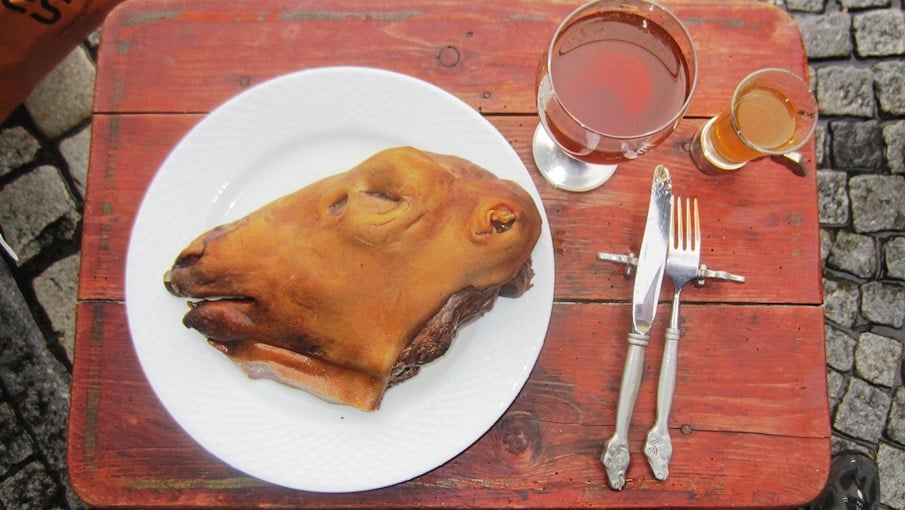
A traditional Norwegian dish made from sheep's head. First soaked in water for 24 hours, then in brine with salt, sugar, salt and pepper. The head is soaked for another 24 hours before being boiled.
This dish is traditionally prepared and eaten on the Sunday before Christmas. It is often served with a combination of mashed rutabaga and potatoes, white pepper, nutmeg, butter and cream. Smalahove originated in times of food scarcity, but today is a festive specialty.
Taste Atlas 's ranking of the 100 worst foods has caused a stir, especially in Thailand, where the popular dish fish curry was ranked number one.
Thai Prime Minister Srettha Thavisin said that Taste Atlas ' ranking of kaeng tai pla as the "World's Worst-Rated Food" only reflects the eating preferences of some people, according to the Bangkok Post .
Mr Srettha explained that not everyone likes the spiciness of kaeng tai pla. However, such a strong flavour is what makes the dish unique and popular, adding that it is one of his personal favourites.
The results have left Thai netizens confused as the dish is popular among many locals, thus the recent trending hashtag "Save Kaeng Tai Pla" (Save the fish curry) has appeared on social media in the land of the Golden Temple.
Source link




![[Photo] Hanoi morning of October 1: Prolonged flooding, people wade to work](https://vphoto.vietnam.vn/thumb/1200x675/vietnam/resource/IMAGE/2025/10/1/189be28938e3493fa26b2938efa2059e)





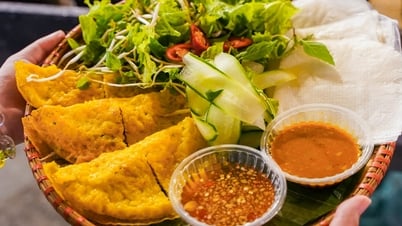



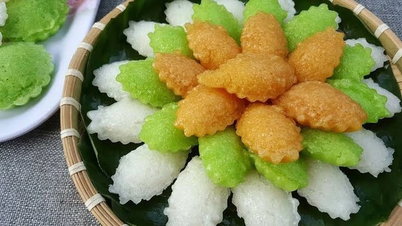


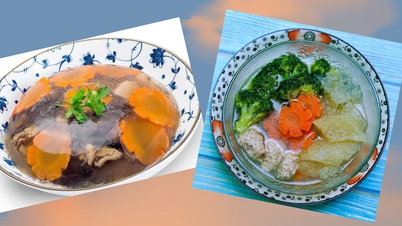

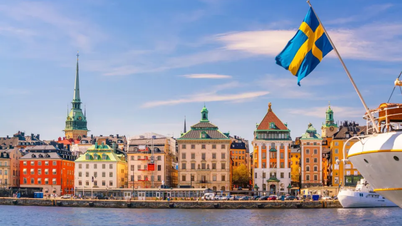
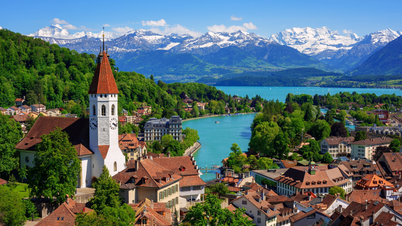














![[Photo] President Luong Cuong receives President of the Cuban National Assembly Esteban Lazo Hernandez](https://vphoto.vietnam.vn/thumb/1200x675/vietnam/resource/IMAGE/2025/9/30/4d38932911c24f6ea1936252bd5427fa)
![[Photo] Panorama of the cable-stayed bridge, the final bottleneck of the Ben Luc-Long Thanh expressway](https://vphoto.vietnam.vn/thumb/1200x675/vietnam/resource/IMAGE/2025/9/30/391fdf21025541d6b2f092e49a17243f)






















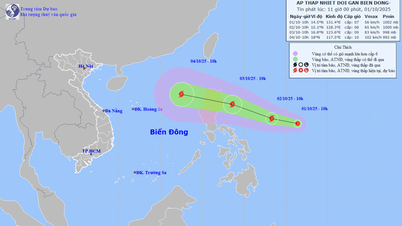














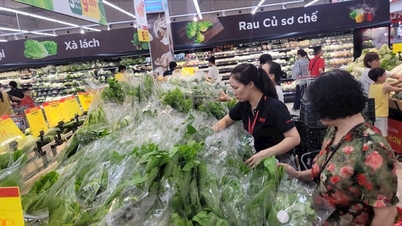


















Comment (0)